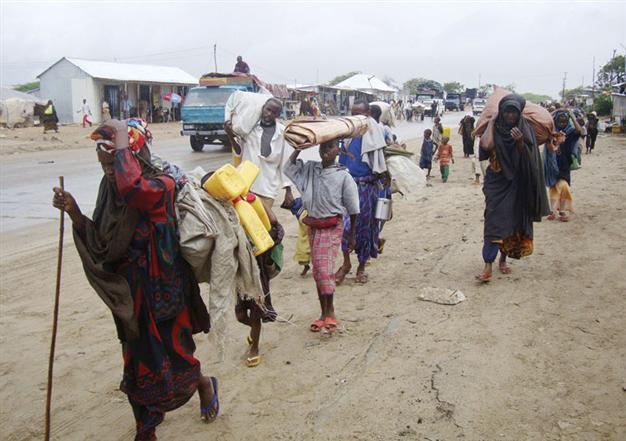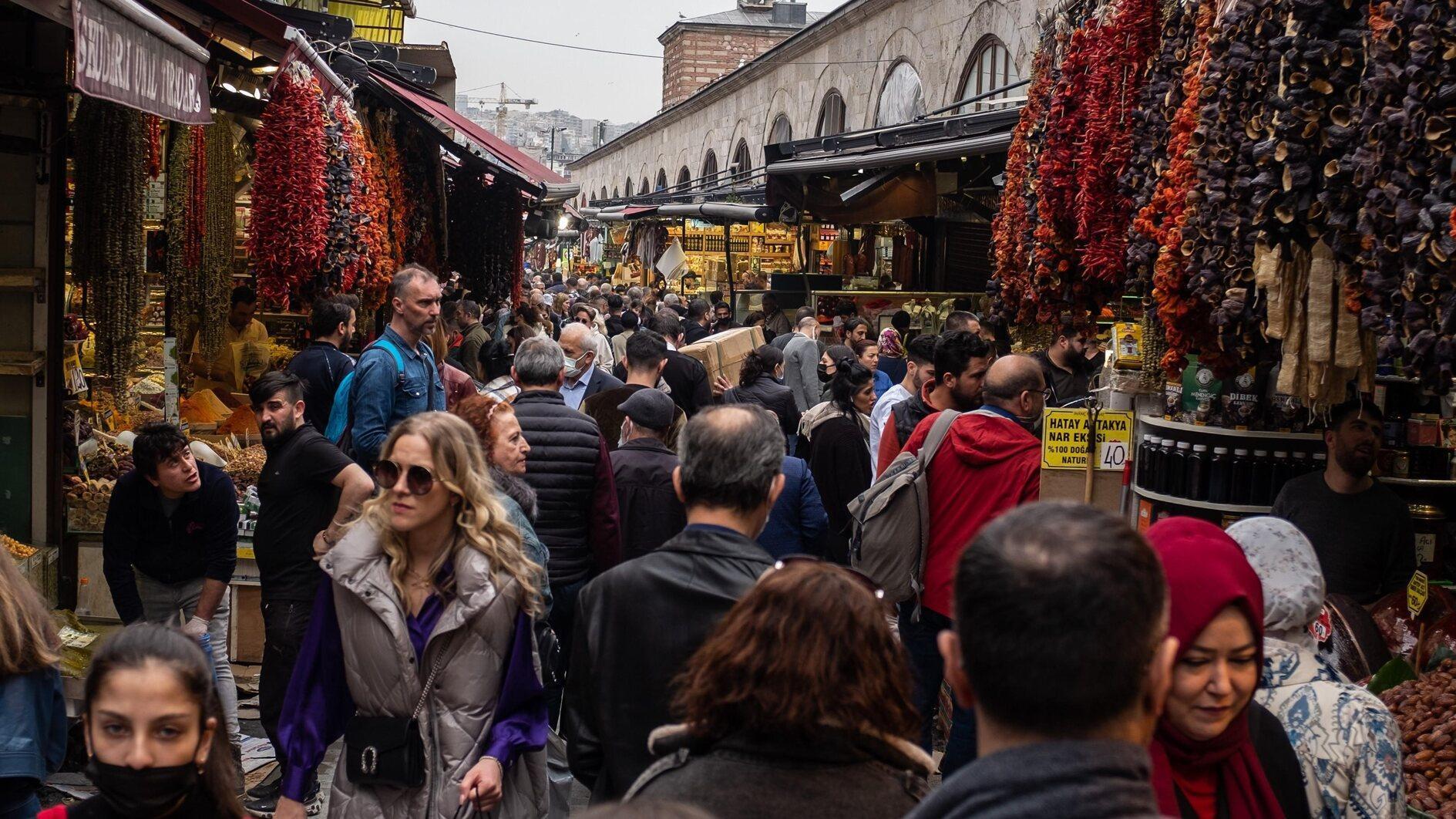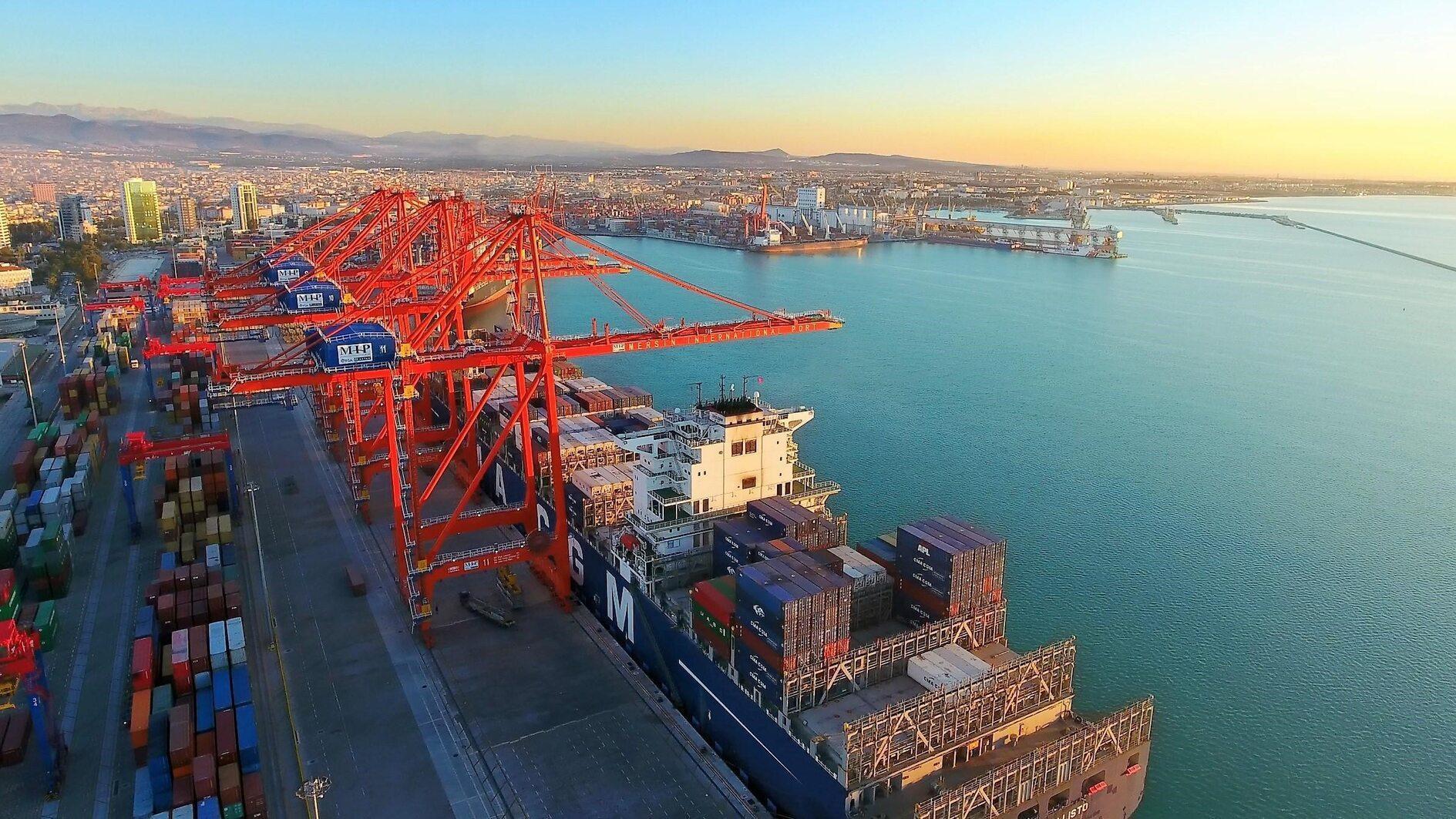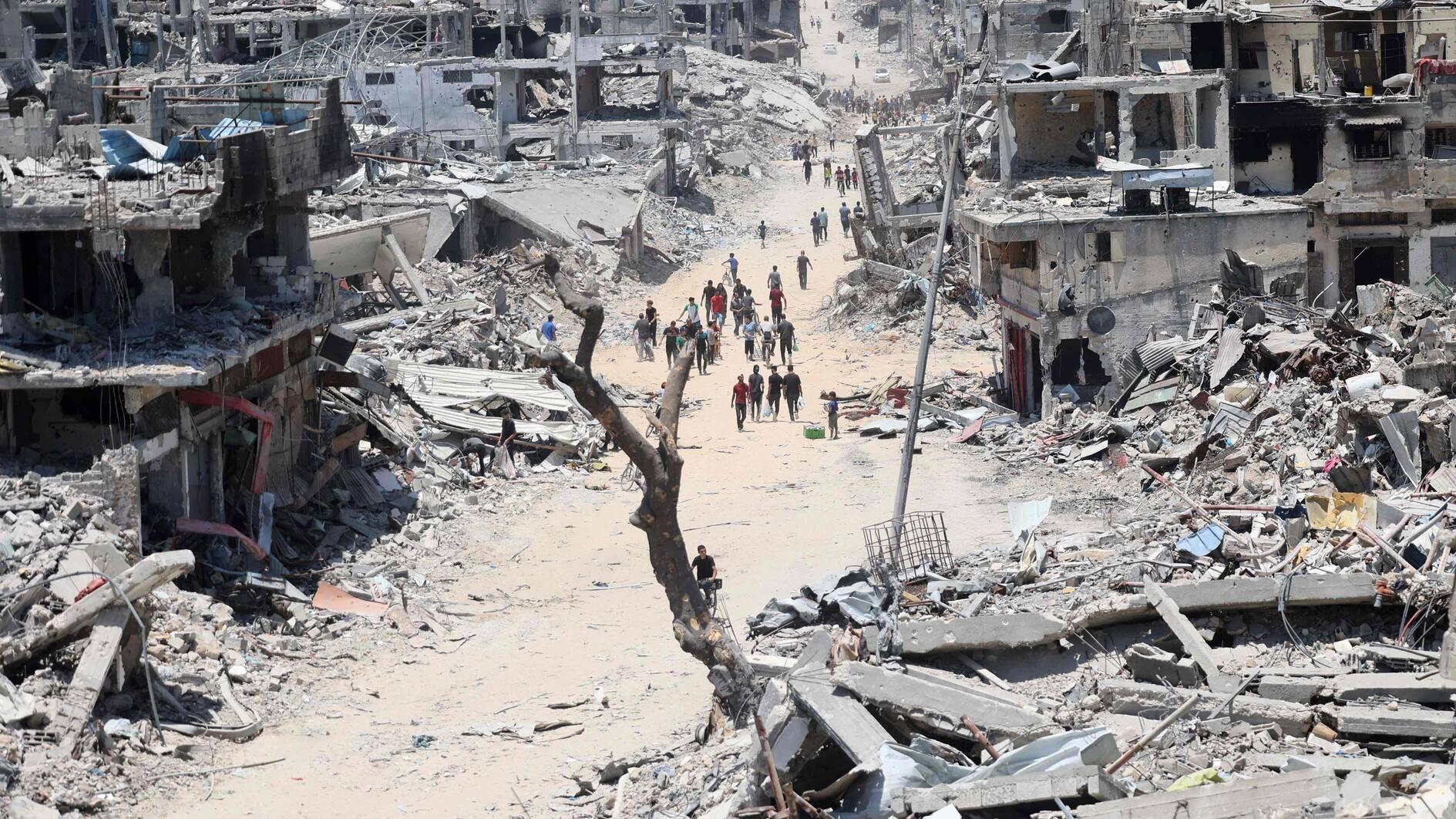Outcome of summit to contribute to peace, sustainability in Somalia
EKMELEDDİN İHSANOĞLU

Displaced people flee Badbado settlement after two groups of Somali government soldiers clashed inside the camp in the capital Mogadishu on August 5, 2011. REUTERS photo
For more than a decade now, Somalia has been the focus of international attention due to its chronic instability and prolonged social strife, which has in turn created a serious humanitarian crisis in a country repeatedly afflicted by severe drought and famine.Consequently, Somalia has always featured very high on the agenda of all Organization of Islamic Cooperation (OIC) Summit and Ministerial meetings, which have passed a number of resolutions on the situation in Somalia. As a result, the OIC continues to actively contribute through its political initiatives and humanitarian activities to finding a durable solution to the Somali conflict and alleviating the sufferings of the people. Over the years, the organization, as a member of the International Contact Group, has emerged as a reliable key partner contributing to various international endeavors aimed at peace building in Somalia. It is also actively participating in all international events on Somalia, the most recent being the February 23, 2012, International Conference on Somalia convened by the British prime minister in London.
As one of the signatories of the 2008 Djibouti Peace Agreement currently under implementation in Somalia, the OIC remains deeply concerned about the implementation of the roadmap to end the transition which terminates in August 2012. While appreciating the modest progress being made in the constitutional process as a prelude towards concluding the transitional period, the OIC has been encouraging the stakeholders to remain focused on the agreed upon deadline to avoid any possible political vacuum in the country.
The OIC recently launched a peace initiative because it is gravely worried by the continuing violence unleashed by the insurgency. Through the peace initiative they hope to assist with national reconciliation and offer an opportunity to those moderate elements who desire to join the peace process and mainstream politics in Somalia. This initiative, at its very early stage, seeks to use a cultural approach and Islamic values considering the comparative advantage of the OIC. It has been welcomed by several stakeholders inside and outside Somalia.
Another area of concrete engagement of the OIC with Somalia is in the humanitarian field. In March, 2011 the OIC opened its Humanitarian Coordination Office (HCO) in Mogadishu to coordinate humanitarian relief assistance to the vulnerable people in collaboration with a coalition of partner humanitarian organizations from the Muslim World.
The HCO divided its humanitarian activities into three phases: Emergency Humanitarian Aid (EHA), Livelihoods Recovery Programs (LRP) and Post Emergency Developmental Programs (PEDP). A memorandum of understanding has been signed between the OIC and WFP for food distribution in the Afgoye corridor to benefit about 40,000 affected people and to be distributed and monitored by partner humanitarian organizations under the umbrella of the OIC.
Famine disaster
On July 20, 2011, the OIC declared a famine disaster in four regions namely Bay, Bakool, Juba and lower Shabelle. Accordingly, the OIC made an urgent appeal to all parties in Somalia to observe an immediate cessation of fighting to allow humanitarian organizations full access to the needy Somalis without preconditions in order to facilitate delivery of emergency food aid to the affected people.
Due to the critical situation and the need to mobilize OIC Member States and institutions to come to the aid of the over three million famine-affected Somali people, most of them women, the elderly and the displaced in Mogadishu, the OIC launched an emergency relief project through the HCO in Mogadishu on July 11, 2011, as the first step in supporting a large number of displaced persons.
A meeting of 22 humanitarian organizations was held in Istanbul, Turkey on July 28, 2011, where it was decided to establish the OIC Coalition for Relief, as an umbrella for the coordination of humanitarian action to face up to the catastrophic humanitarian crisis in Somalia.
At an emergency ministerial meeting held on August 17, 2011, in Istanbul at the initiative of Turkey, OIC Member States pledged $350 million in aid to fight the famine in Somalia. The pledged amount includes $150 million mobilized internally by Turkey for Somalia through a successful national campaign.
As the transition gradually comes to an end, the OIC remains committed to supporting the long-term peace building, reconstruction and development efforts in Somalia. It also recognizes and pays tribute to such devoted partners particularly Turkey, the United Nations, the African Union, the League of Arab States, the European Union and IGAD for their overall contributions towards stabilizing Somalia. I am confident that the outcome of the Second Istanbul Conference on Somalia will contribute to fostering sustainable peace and stability in Somalia.
*Secretary General of the Organization of Islamic Cooperation (OIC) Ekmeleddin İhsanoğlu
















